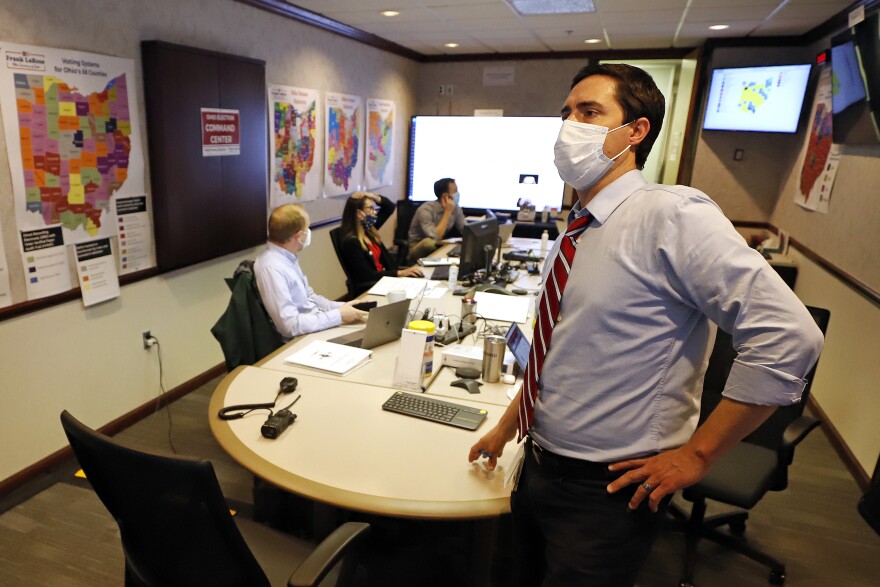Ohio’s Secretary of State says an election day with in-person voting is still the plan for this fall, but he’s suggesting some changes in case concerns about coronavirus keep voters away.
Frank LaRose suggests putting absentee ballot requests online, with an earlier deadline, and that the state pay the postage for both those requests and to return those ballots.
Jen Miller at the League of Women Voters of Ohio agreed that in-person voting must be preserved if possible. She also would like more than one early voting location per county.
“I also think a way to reduce lines and therefore the crowds on election day would be to improve the vote by mail process, to really incentivize vote by mail, but also to increase opportunities to vote early," Miller said.
Miller and LaRose both say lessons can be learned from last week’s primary and can be applied to the August special election and the November general election.
Voters across the state reported they hadn't received their requested absentee ballots, leading LaRose and Ohio's Congressional delegation to request the U.S. Postal Service speed up delivery of those ballots.
LaRose ended up announcing that those absentee voters who hadn't received ballots could cast ballots in person at boards of elections on April 28, along with people with disabilities and homeless Ohioans.
Following the election, LaRose wrote a letter to three House Democrats saying that provisional ballots cast by voters who didn't fall into those categories wouldn't be counted.
"Unfortunately, if the in-person, provisional voter did not have a disability or inability to receive mail and the voter did not apply for an absentee ballot by the HB 197 deadline of noon on April 25, 2020, then under the measure approved by a unanimous, bipartisan vote of the General Assembly on March 25, the voter was not lawfully eligible to vote in person on April 28," LaRose wrote.
Miller is concerned about that.
“The bottom line with this entire primary is that it was so complicated, so cumbersome for both voters and boards of elections alike, that we know there will be voters that will be left out of the system or gave up," Miller said.


